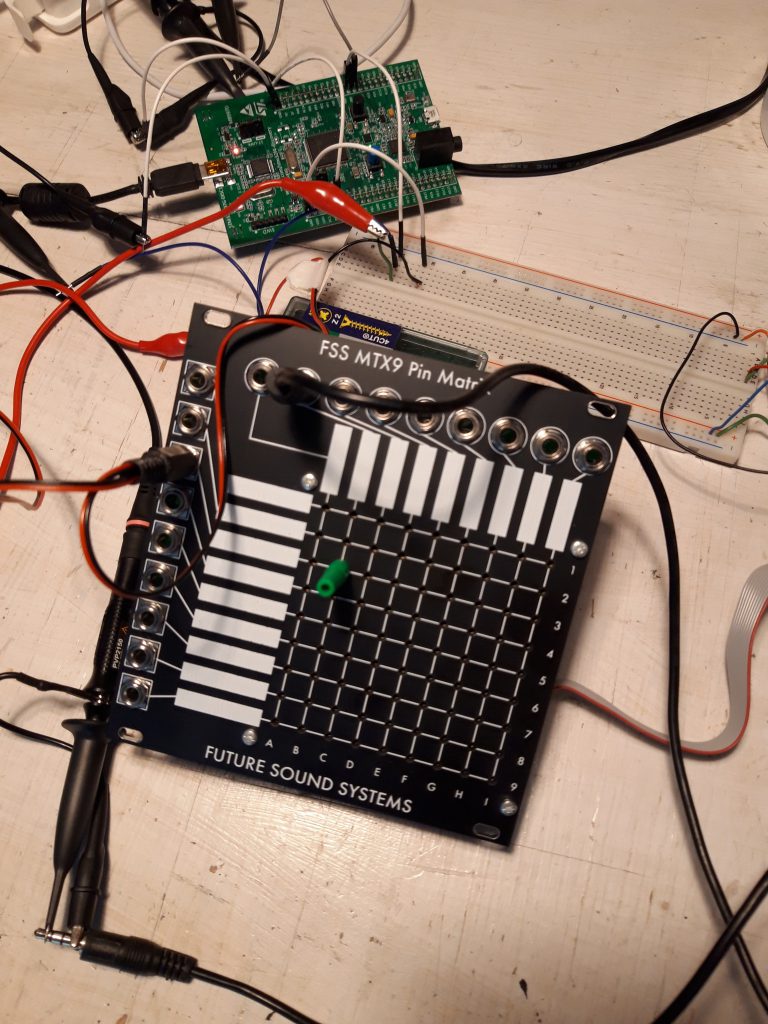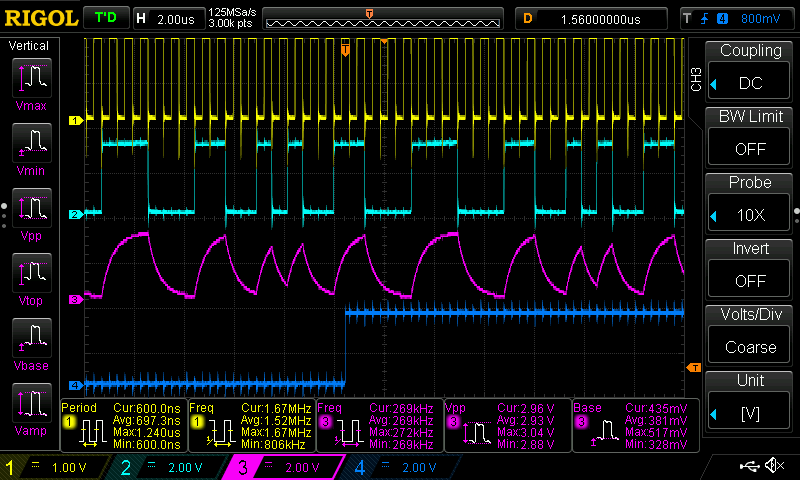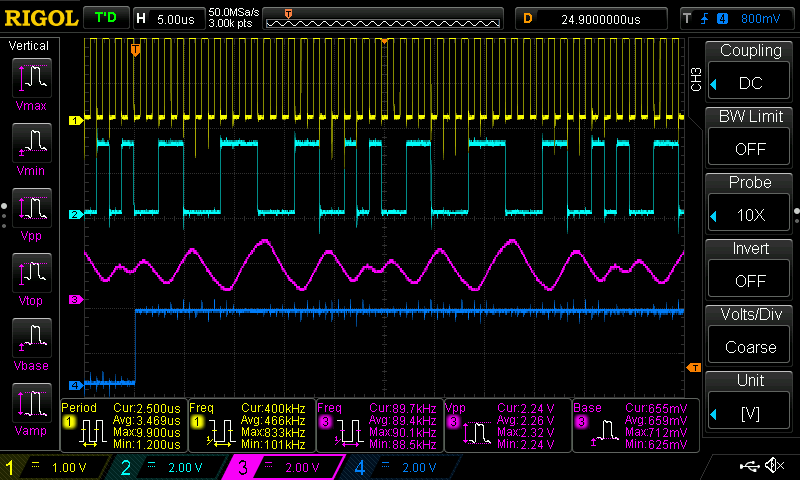1-bit audio: Testing audio hardware
For an upcoming performance at the Ars Electronica Festival 2020 SOUND CAMPUS, we are testing hardware to interconnect 1-bit audio streams.
For that purpose, we are using an STM32F4 Discovery Board to generate 1-bit audio streams, sent through a Future Sound Systems MTX9 point pin matrix (Figure 1) as often found in modular synthesis systems.
The software used on the STM board to efficiently generate 1-bit audio streams using DMA transfer over an SPI interface is an offspring of our DADA hardware development efforts.

The FSS MTX9 can be used as passive hardware (only 1-to-1 connections), or using the MTX9A buffer board to sum over input busses.
In passive mode (Figure 2), the bandwidth is sufficient to come close to 1 MHz bit rate which allows 32-fold oversampling at usable PCM audio rates.

For active mode (using the buffer board MTX9A, Figure 3), the hardware introduces low-pass filtering, reducing the audio bandwidth to around 100 kHz. This is good enough for high quality analog audio, but not for 1-bit digital audio at high bit rates.

Clearly, it must be noted that the summing function over inputs is not strictly meaningful for 1-bit signals, where some kind of post-processing needs to bit applied to return to single bits.